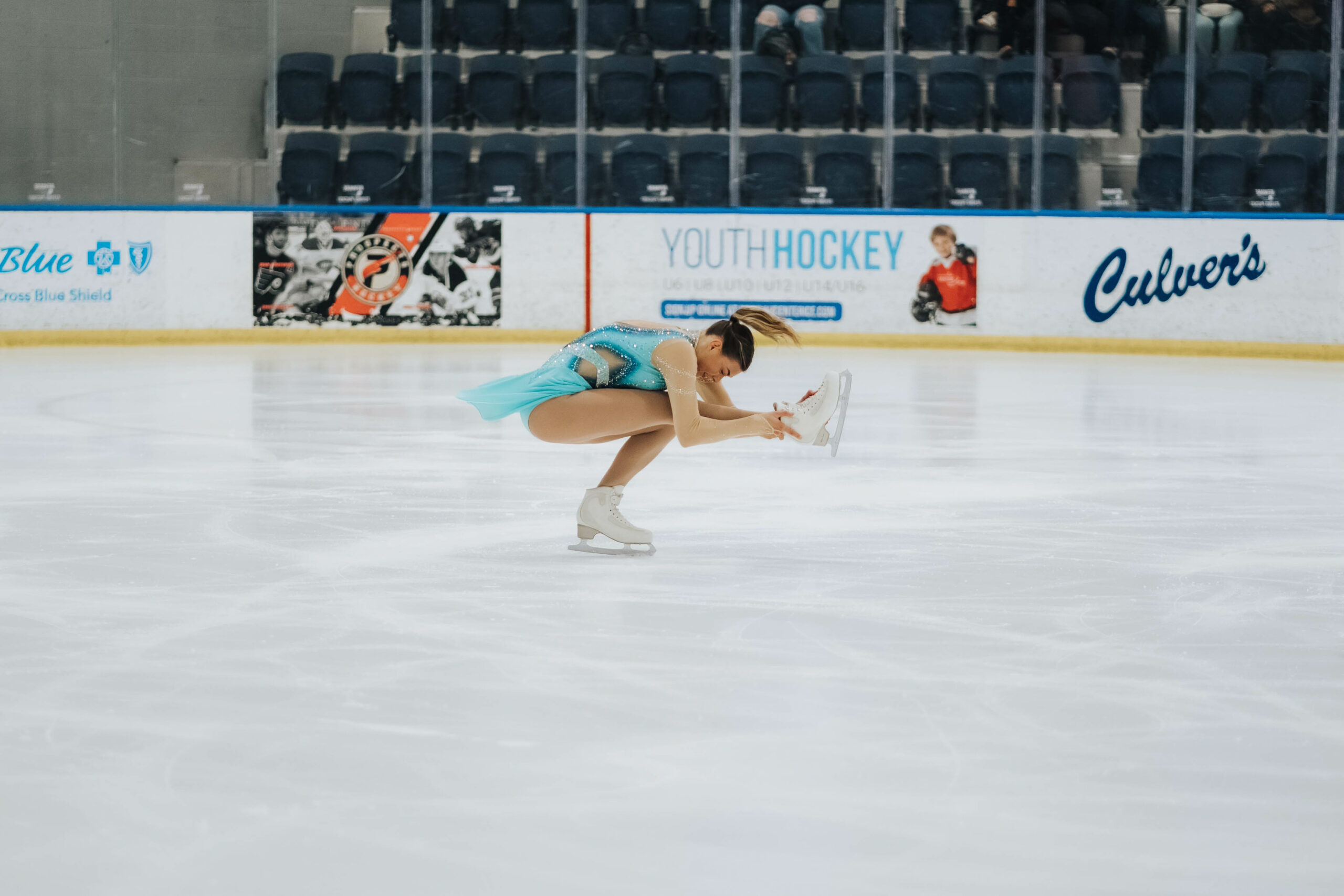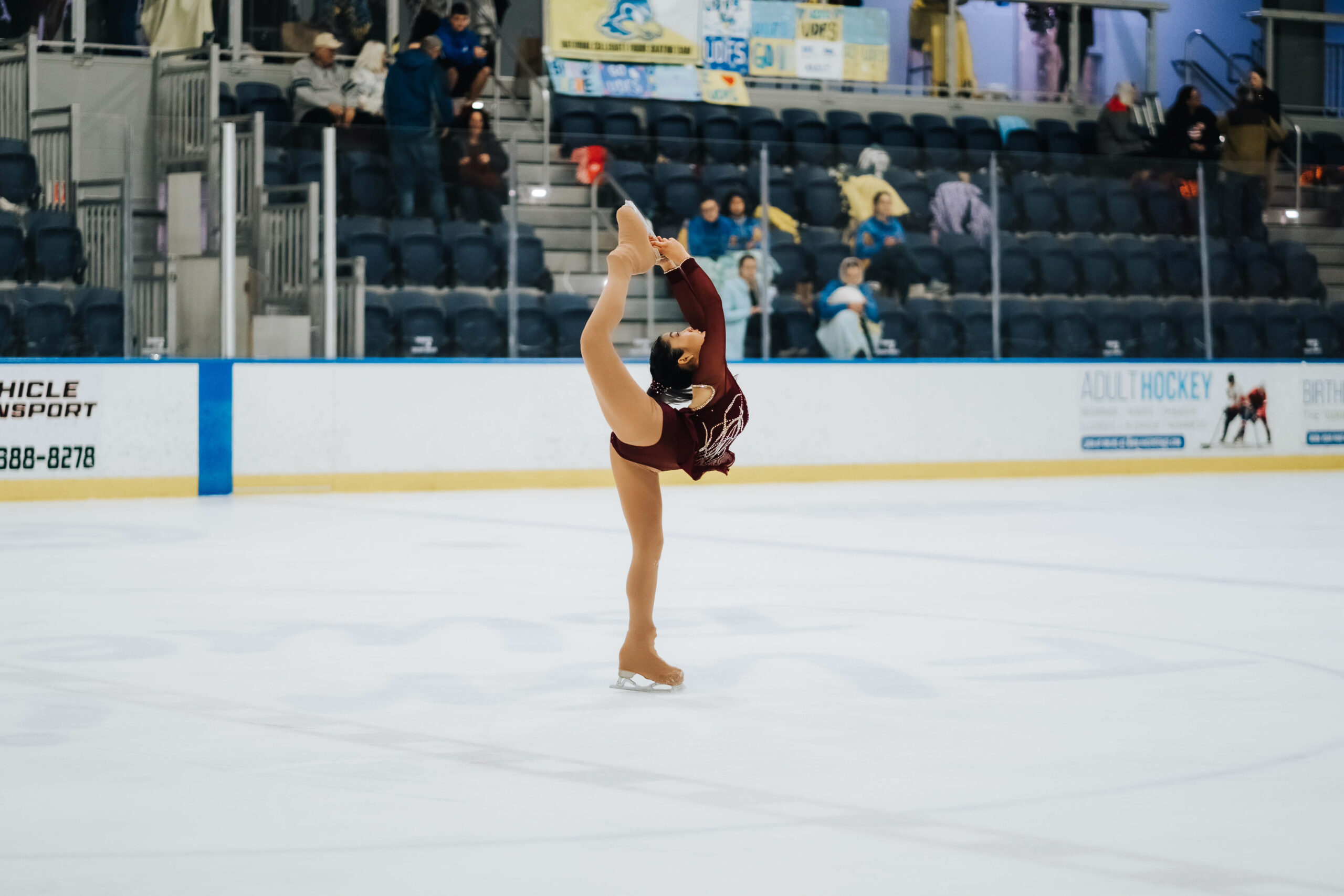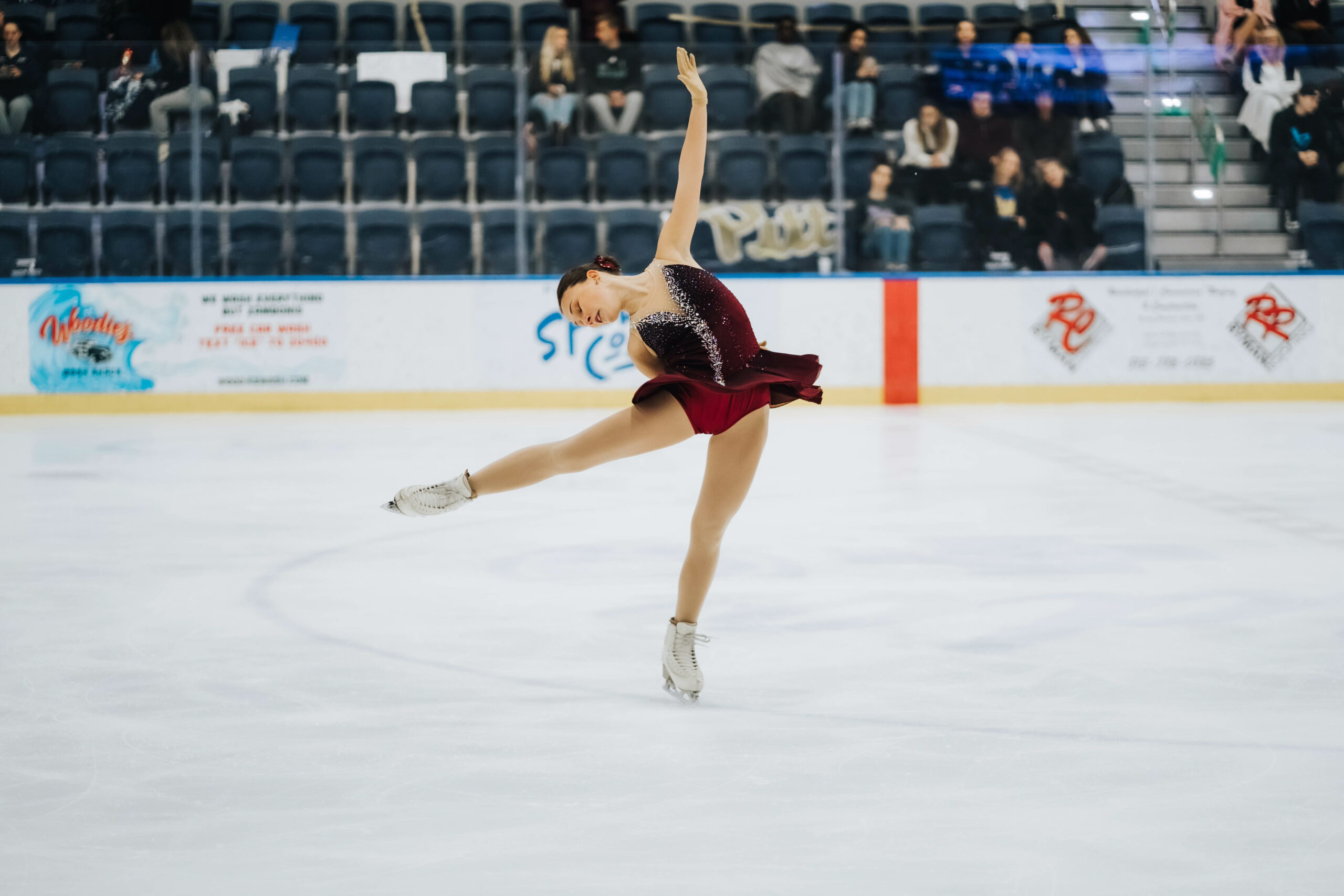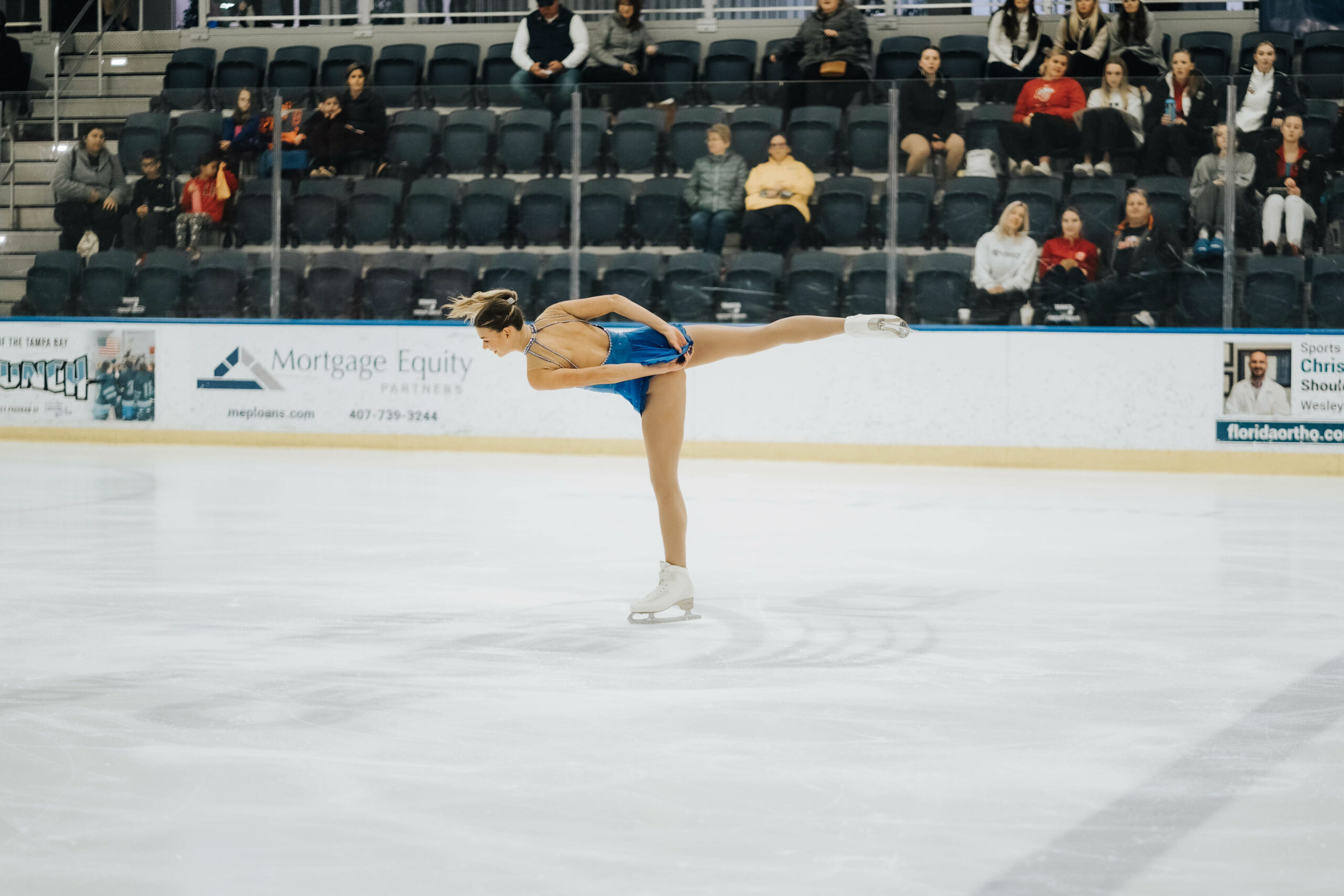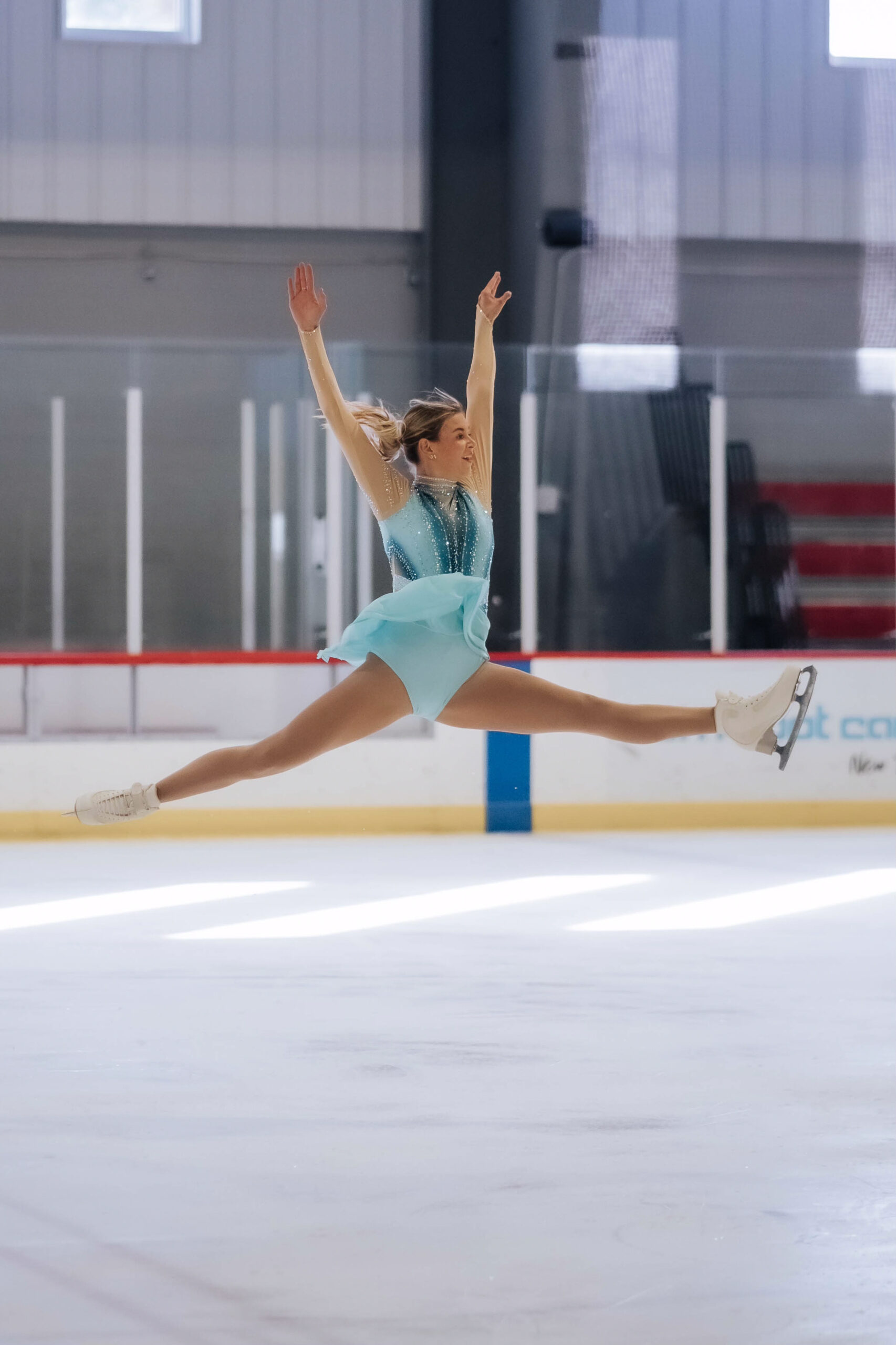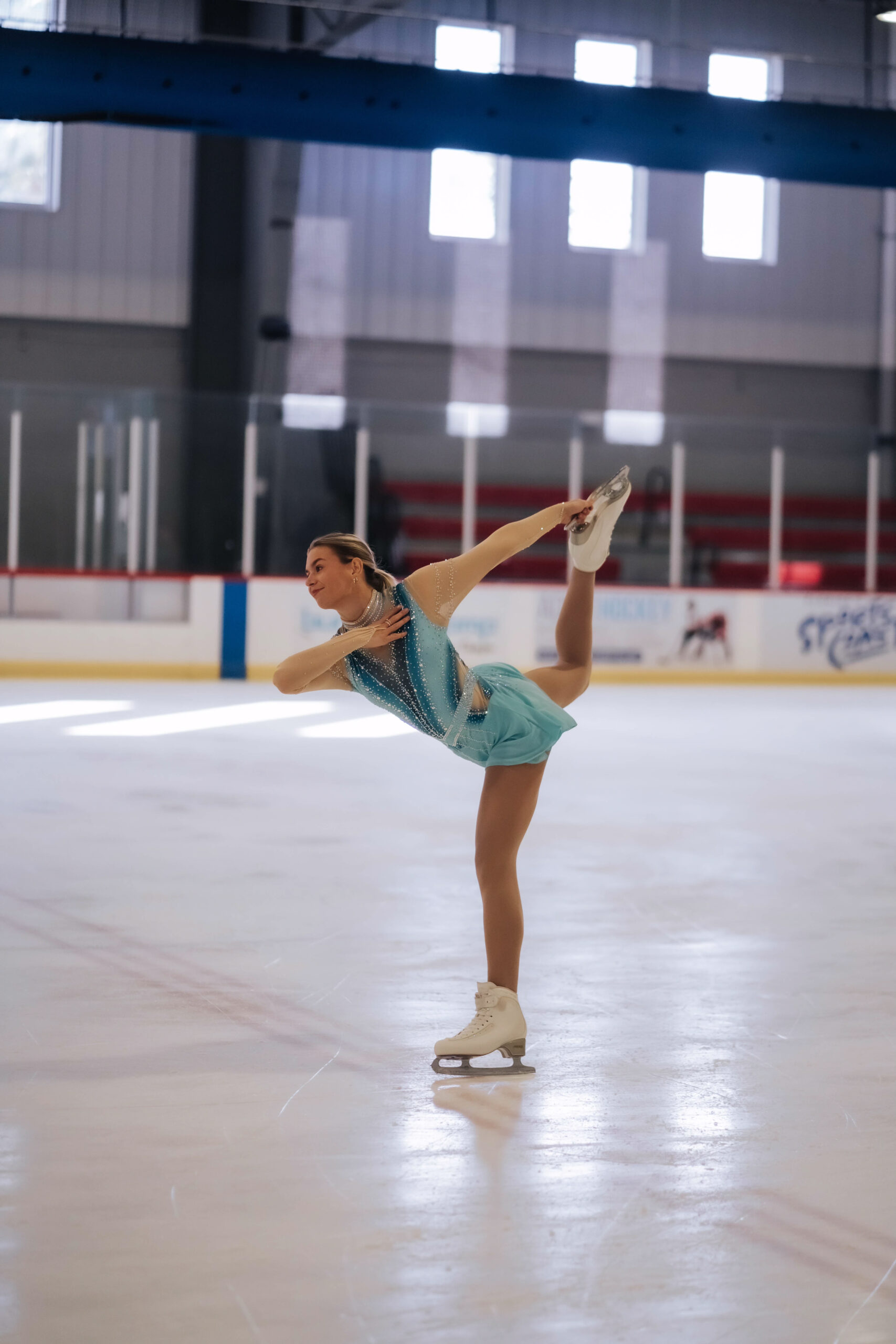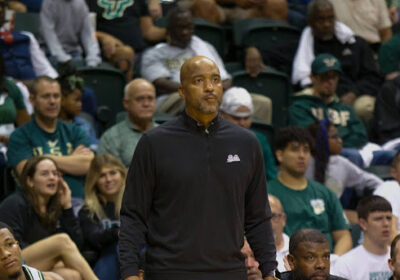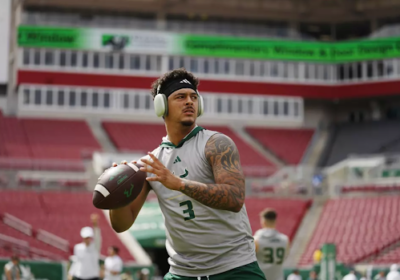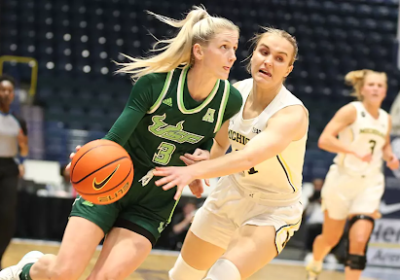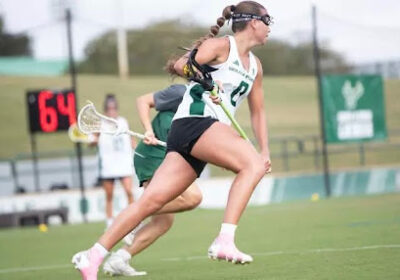Florida’s first intercollegiate figure skating team creates familial atmosphere

In a short amount of time, South Florida’s intercollegiate figure skating team has made a name for themselves by being the first team of its kind to form in Florida.
The program was started in 2021, and since then the team has had two full-functioning seasons with the Bulls.
At the start of their first season, the team only consisted of 10 members. Now, the club has 35 recreational members and an additional 15 for competitions.
So far, the team has gone to place fourth in the Southeast Region which automatically qualified them to go to nationals. During nationals, they placed 12th overall out of the 16 teams in the bracket.
USF’s sports counsel also honored the program with Outstanding Traditional Sport Club of the Year and Report Card Score of the Year.
Senior president and founder of the club Jordyn Lutz also won Sports Club Athlete of the Year.
Both Lutz and senior vice president and social media chair Chloe Elledge shared a bond over figure skating, which inspired the two to start the club in 2021.
For Lutz, it helped her find her footing at USF after transferring from a school that did not have a figure skating team.
“At my old school, I didn’t want to be involved on campus [because] I didn’t know what to do,” Lutz said.
“But then I came to this school and it’s skating all the way. It helped me find where I belonged. We get to represent our school and be involved in such a cool way and that’s what I hope a lot of people see.”
Since it is considered a club sport and not a Division I team, USF’s sports club counsel only pitches $20,000 toward their funding each season.
This can be a struggle for the competitive team since most of the money does not cover uniforms and skates, facility amenities or coaching and training staff, according to Elledge.
Uniforms can go for around $600 while skates can be up to $1,000, along with renting out ice time for the team which is $345 per hour.
Elledge said if they want extra material for their team, it needs to come from themselves.
More so, Elledge said USF is cracking down on what school funded money can be used on. This makes it difficult for the club since they rely on those funds for registration fees and skating time.
“All of our competitions are far away and not driveable, unlike other club sports where they’re competing with Florida teams,” Elledge said. “That’s where we get excluded almost and it feels like we’re not accommodated as we would be in the upcoming season.”
Despite having minimal funding for their program, Lutz said they have managed to budget it well. They even hosted their own figure skating competition this season called the South Florida Sunshine Classic.
SPECIAL TO THE ORACLE / CLAUDIA LAUX
Pioneering the first intercollegiate figure skating club in Florida has drawn attention from other schools in the Southeast Region to start their own programs, like Florida Atlantic University, where Lutz transferred from, and Georgia Tech.
Not only does this benefit future intercollegiate figure skating teams to compete against each other, Lutz said it is a great attraction for USF to get skaters to join the school.
“I’ve seen people from up north all wanting to come to this school because they’re skating in a nice sunny spot,” Lutz said. “It’s really tempting because we’ve really become such a growing program and there’s so much light within all that.”
Aside from recruiting skaters from out of state, this club has brought attention to the figure skaters within the states too.
One of the requirements for being on the competitive team is being enrolled as a full time student. This creates a mentality of “no school, no skating,” according to Lutz, and motivates the members of the team to excel academically.
Figure skating is not commonly talked about within the sports world, and along with its lack of recognition, it is seen as an individual sport as well, according to Elledge.
With both the recreational and competitive teams, a familial atmosphere has been created, Elledge said. This has benefited both Lutz and Elledge personally and on the ice.
“This competitive nature allows the skaters of our school to come together [and] make our individual sport a team sport, which a lot of us have never experienced before,” Elledge said.
“Doing that together is really great [because] we can build the memories of being at a competition together to all represent under one body as USF figure skating.”
Lutz and Elledge are both set to graduate this semester, so sophomore recruitment chair Maria Gruszczynski will be stepping up as president.
Gruszczynski has been skating since she was 6 years old and started competitively at 13. Her position on the team is recruiting members for the club, which has gained her recognition from the U.S. Figure Skating.
“I was selected by U.S. Figure Skating to be a U.S. Figure Skating collegiate ambassador. So what I do with that is I help advertise basically the collegiate skating programs that are offered by U.S. Figure Skating,” Gruszczynski said.
“I am very excited for the leadership aspect coming up for the next year.”

